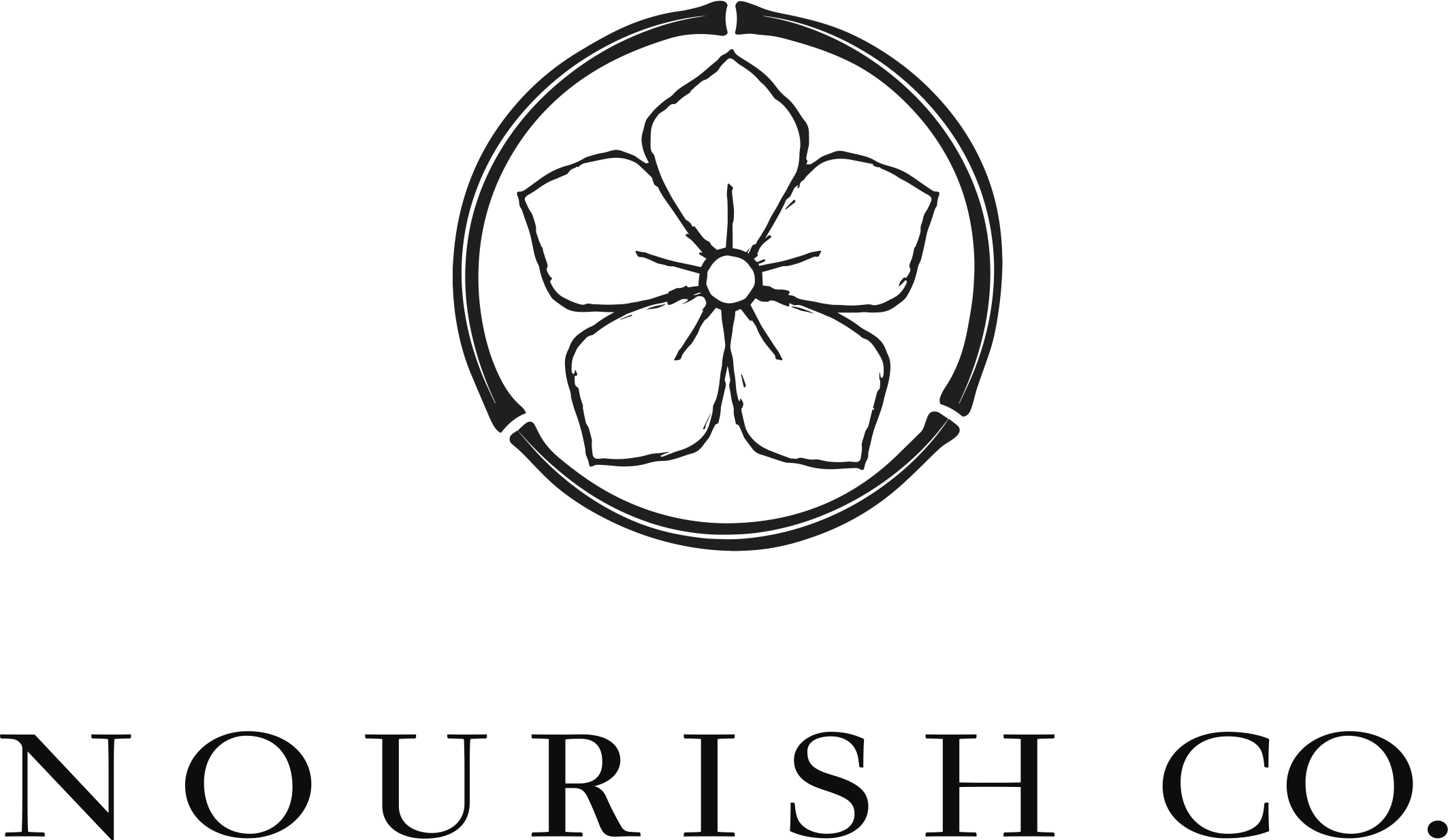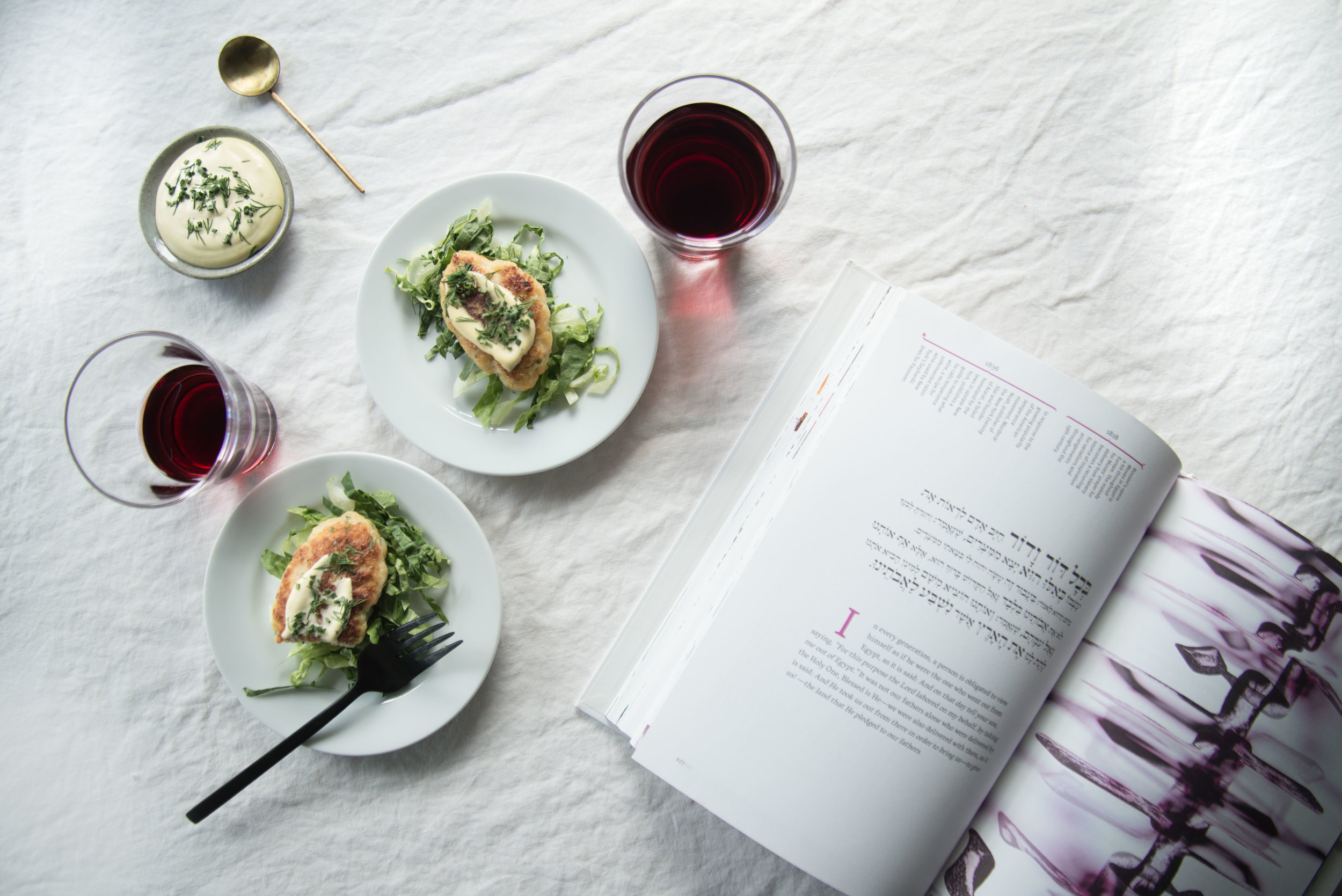Japanese Kamaboko (Fish Cake)-Inspired Gefilte Fish for Passover
*Originally posted to InterfaithFamily
One of the Ashkenazi Jewish foods I've always been curious about is gefilte fish. Mostly because so many of my Jewish friends either love it or hate it!
Whenever I think of gefilte fish, I think of the Japanese version of fish cakes that I grew up with: Kamaboko. Coincidentally, when you search for "gefilte fish" online, kamaboko also shows up as one of the few other similar fish cake dishes in the world (and vice versa). Kamaboko is a cured and processed seafood product or fish cake, of which there are countless types in Japanese cuisine. Red and white kamaboko are eaten on New Year's Day in Japan as one of the many lucky symbolic foods. They're also eaten as a snack by both children and adults in Japan. Similar to jarred gefilte fish, there are certainly very processed versions available. However, there are also kamaboko makers of exceptional quality in Japan. When I lived there, I'd sometimes stop at the local kamaboko shop on my walk home from work. There are many different flavors available, which are created by mixing in different seasonal vegetables. It's often served with a dollop of Japanese mayonnaise, and is a delicious and nutritious savory snack.
This year, I thought I'd try combining Japanese and Jewish recipes to make a kamaboko-inspired gefilte fish. Instead of steaming the patties, I've chosen to pan fry them- this browns them nicely and gives them a nice crunch on the outside. I also chose to use potato starch instead of matzo meal as a binder, which is what gives kamaboko a slightly firmer and bouncier texture. These fish patties are a great first course for your Seder meal or a wonderful afternoon snack. This recipe is also incredibly easy, especially if you have the fishmonger debone, skin and grind the fish for you!
Japanese Kamaboko (Fish Cake)-Inspired Gefilte Fish for Passover
Cooking time:
Serves: Makes 12 Patties
- 1-1/2 pound white fish (rockfish, cod, sole, other or a combination) deboned, skinned and finely ground (This will be about 1 1/4 lb pre-ground. See note below)
- 2 egg whites
- bunch of chives, finely chopped
- 1/2 a small carrot, peeled and grated (on the smallest side of a cheese grater)
- 1/2 inch piece of peeled and grated ginger
- 1 teaspoon kosher salt
- 3 tablespoons potato starch
- 3 tablespoons white wine (or mirin if not kosher for Passover)
- 3 tablespoons sugar (omit if using mirin)
- About 6 leaves of finely shredded romaine lettuce for serving
- Olive oil or vegetable oil for shaping, resting and pan-frying
- 1/2 cup Japanese kewpie mayonnaise (Vegenaise or regular mayonnaise would also work)
- 1 teaspoons apple cider vinegar
- 1 teaspoons wasabi powder (or 1 teaspoon grated horseradish)
- handful of finely chopped dill and chives for garnish
- A note about the fish: I used rock cod, but most white fish work well– I especially like the texture and flavor of wild caught. Most kamaboko and gefilte fish are made with a blend of fish– you could even throw in salmon. I highly recommend asking the fishmonger (it will save you loads of time) at the counter to debone, skin and put it through the grinder. You lose about a 1/4 pound to the grinder, so you’ll need to purchase a little more to start. If the fishmonger at your local market is not able to do this, carefully debone and skin the fish yourself (buy the exact amount in this case). Using a food processor, blend until smooth.
- Place the ground fish in a large mixing bowl. Add a little bit of salt at a time and mix until well-incorporated. Add the rest of the ingredients and mix well. Let the mixture sit at room temperature for 30 minutes.
- Pour a bit of neutral-flavored oil into a small bowl. Pour a bit more onto a lined baking sheet and spread it evenly.
- Coat your hands with a bit of oil from the bowl and place about 2 teaspoons of the mixture in your hands. Press lightly and shape them into flat little footballs (see image). You’ll need to coat your hands with oil every 2-3 patties. Once you’ve used up all of the mixture, let them sit on the baking sheet for 30 minutes.
- Heat a large non-stick pan over medium-low heat and heat a bit of oil in the pan (I prefer a non-stick for this). Once the pan is hot, carefully place fishcakes one by one onto the sizzling pan. Cook for about 3-4 minutes on each side, uncovered, until browned and the center is firm. You can also check for doneness with a toothpick– if it comes out clean, it’s cooked.
- Let the fish cakes cool slightly on a paper towel (about 10 minutes). Place them on a bed of shredded romaine lettuce, top with a dollop of wasabi mayonnaise and garnish with chives and dill. Enjoy!
Head here to visit our Modern Heirlooms web shop, where I've thoughtfully co-created ritual objects with my favorite artisans (in limited runs) to help you elevate your sacred rituals.
I truly believe that cuisine is the most accessible gateway into learning more about our rich heritages. In addition to food, there are so many ways to celebrate, honor, and even reclaim, our time-honored traditions. I believe ritual objects really help anchor us in these moments-- especially around the table.


